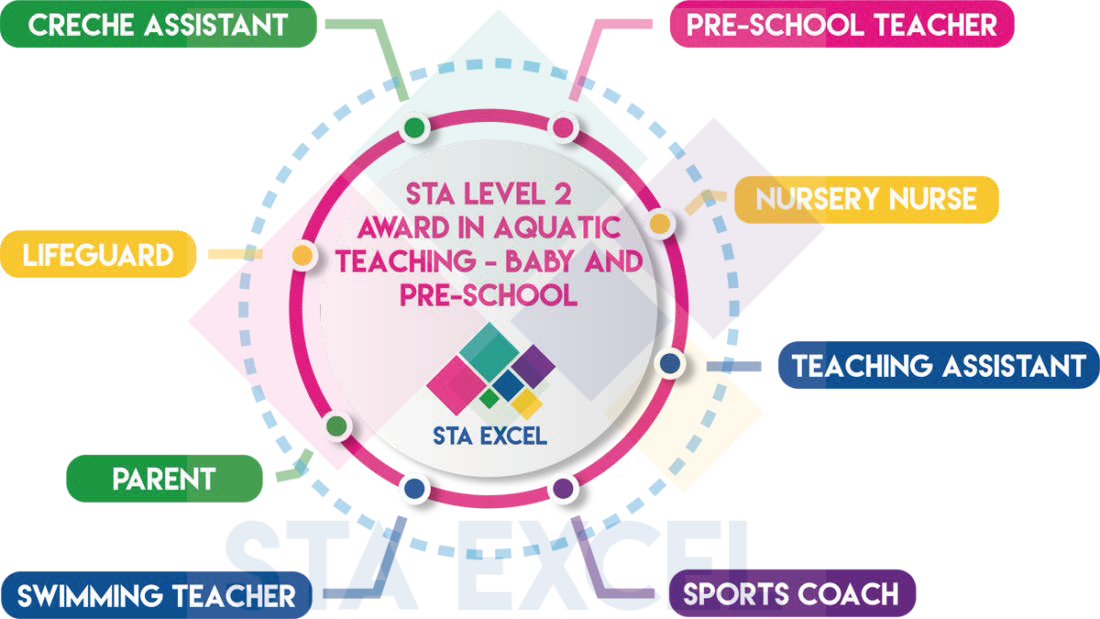Begin a career in a rewarding role as a baby swimming teacher, introducing parent and child to the swimming pool through lessons packed full of experiential learning, fun and games. The STA Level 2 Award in Aquatic Teaching – Baby and Pre-School Swimming may be undertaken by an individual aspiring to work specifically as a baby swimming teacher, or offer a further development opportunity for already qualified swimming teachers.
The STA Level 2 Award in Aquatic Teaching – Baby and Pre-School Swimming is intended for those looking to take up a position as a baby swimming teacher. Successful completion of this qualification allows learners to deliver swimming lessons to babies, toddlers, pre-school children and their accompanying adults—helping them to develop a range of basic aquatic and safety skills, plus basic swimming strokes.
Interest in Swimming
Confidence around babies and children
Confidence leading a group
Creative
Enthusiastic
Enjoy working with people
Good role model
Good organisation
Patience
Empathy
Sociable
Learners may complete this qualification for a career specifically in teaching baby and pre-school swimming. Alternatively they may undertake this qualification to compliment another role.

The course is comprised of a mixture of theory and practical elements enabling the learner to acquire the specialised technical knowledge and practical hands on teaching aquatic activites to babies, toddlers and pre-school children during adult and child lessons.
Learners will acquire the skills required to plan, deliver, assess and evaluate a series of progressive and fun swimming lessons for groups of up to 12 adult and baby/toddler pairs.
The following units are covered within this qualification:
The STA Level 2 Award in Aquatic Teaching – Baby and Pre-School Swimming is tutor assessed through the completion of:
On the final day, the learners will complete an external assessment which comprises of a theory multiple-choice question assessment paper and a 15-minute practical lesson to between 2 and 4 adult-child pairs.
This course does not carry an expiry date—instead learners are encouraged to keep their knowledge and skills up-to-date through completion of continuing professional development (CPD).